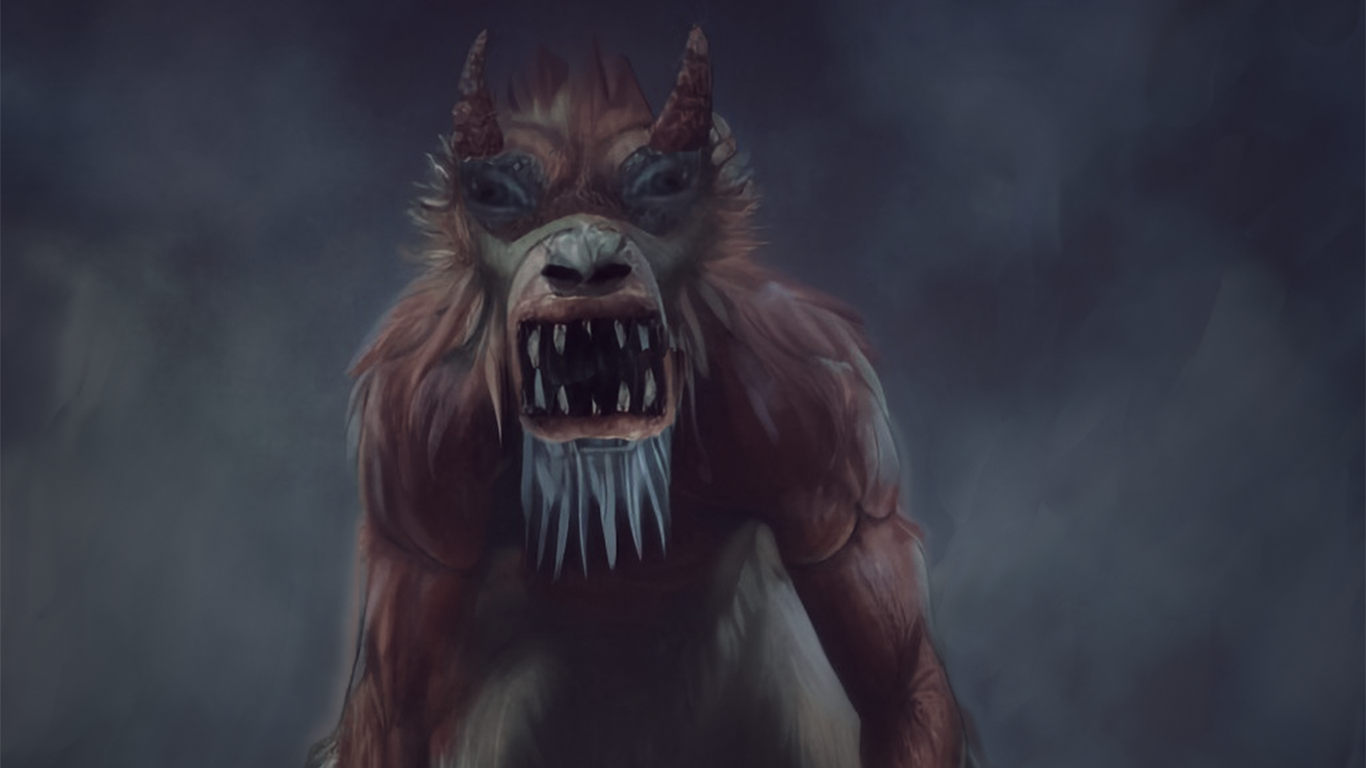We may earn money or products from the companies mentioned in this post.
Editor’s Note: This article was originally written back in the earliest days of the Death Cookie (1999-ish), when the D&D alignment system’s potential for unintentionally coming across as racist allegory had been less thoroughly examined.
The AD&D game (as well as a few others–especially those of the fantasy genre) has some very frightening subtext. The basic pretext of the game (at least early on) is to go out and kill “evil” monsters. This is all well and good. Killing evil unnatural beasties is a long-standing tradition in mythology and fairy tales. This works fine when there are plenty of demons, golems, and other nasties to fight. However, when the critters start talking and exhibiting intelligence, things get a little scary.
Far too many of the creatures being slaughtered in a wholesale fashion seem to have intelligence. They have homes full of cooking pots, treasure, and beds. There are children of the species, and some even have their own language. They seem a lot more like a culture than a ravening horde of monsters. However, as any paladin can tell you, they are evil and must be destroyed.
They’re evil and must be destroyed. That idea is what bothers me. It’s been used to justify human slavery, wholesale genocide, and other equally nasty policies. Sure, the actual phrasing was a little different–“they don’t believe in our God”; “they’re savages who don’t deserve to be treated like us”; “she’s made a pact with the devil-burn her!” -but the subtext is the same. They don’t have the same right to go on living as you or me, either because they’ve consciously chosen a life of “evil” or because they just aren’t bright enough to know any better.
Granted, it is just a game, but I think it sets a very bad example, especially for younger players. The kid who just picked up D&D quickly learns that all orcs are evil barbarians and should not be trusted in spite of the fact that orcs are, as far as one can tell from the description, a sentient race of humanoids. Is it really that much of a jump from “all orcs are evil barbarians” to “all black people are criminals” or “all Arabs are terrorists?” [Author’s Note For The Context Impaired: These stereotypes are BAD things and should not be condoned.]
Fantasy literature doesn’t help much. Sure, they often include characters who are members of these “evil” races but are perfectly fine folks. Unfortunately, these characters are always the exception to the rule. “All kobolds are nasty little barbaric flesh-eaters, but our pal Bucky the kobold’s different.” Ever heard this sentiment in a slightly different context?
I guess the point here is for GMs and players to remember that generalizations are just that. One of the biggest problems I have with D&D is the alignment system, which can conveniently classify a whole race as evil. In the game, just as in the real world, this justifies genocide. You don’t have to worry about the slaughter of innocents when you are sure that you are righteously destroying that which is evil.
The problem, of course, is that nobody’s evil for the sake of being evil. Sure, some people do things that are definitely not nice, but very few do it for the sake of being evil. Some have a screwed up belief system, others have mental disorders, but they always have reasons.
Don’t get me wrong–prejudice is, unfortunately, a reality. I’m a big believer in filtering the information I give my players through the inborn prejudices of their characters or the NPCs giving them information. The trick is to show them the other side of the story. Sure, they may have grown up believing that all orcs are mindless savages. However, when they actually encounter a group of orcs and don’t decide to kill them immediately, they usually discover that the orcs aren’t so different from themselves. Not only does this offer good role-playing opportunities; it prevents the game from being two-dimensional. Unless something is a true MONSTER in the mythic/religious sense, it should very rarely be evil just for the sake of being evil. Sure, some creatures may have some pretty strange notions, but they ultimately tend to think they’re doing the right thing.
So, the next time your PCs meet a group of ogres, why don’t you think about them a bit? Rather than having the one they captured to pump for information scream “Grog Smash,” have him tell the PCs why he tried to beat them up, filtered through the cultural worldview of an ogre in your game world. Maybe 1,000 years of persecution is the reason ogres are so ill-disposed toward humans. Maybe this particular ogre needed the money he would take from the PCs to feed his family. Evil, when applied to a group, is always a generalization, and it has a different meaning to nearly everyone. Think in terms of individuals and culture, not moral absolutes.




